Author(s) |
Title and Abstract |
Hallinger, P.
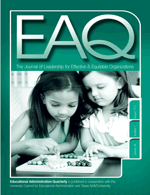
|
A review of three decades of doctoral studies using the Principal Instructional Management Rating Scale: A lens on methodological progress in educational leadership. Educational Administration Quarterly, 47(2), 271-306.
Abstract: The article reviews the full set of 130 doctoral dissertations completed over the past three decades that used the Principal Instructional Management Rating Scale (PIMRS). The report analyzes trends in the research foci, conceptual models, research designs, and statistical methods employed in these studies.
Keywords: educational administration, instructional leadership, principalship, research methods
|
Hallinger, P.,
Walker, A.,
& Lee, M.
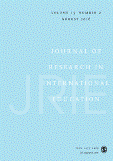
|
Program transition challenges in International Baccalaureate schools. Journal of Research in International Education 10(2), 123–136.
Abstract: In this study we analyze a global survey of IB Program Coordinators in 2008 in an effort to understand the challenges that schools are experiencing as they seek to support students in making a successful transition from the Middle Years Program to the Diploma Program. We also highlight differences in the challenges faced by partial continuum and full continuum IB schools and offer recommendations for addressing the ‘transition problems’ identified in the study.
Keywords: International Baccalaureate, full continuum schools, MYP–DP transition, partial continuum schools, program implementation
|
Lee, M., & Park, H. W.

|
Exploring the web visibility of world-class universities. Scientometrics, 90(1), 201-218.
Abstract: With the rapid development of the Internet, there is a need for evaluating the public visibility of universities on the Internet (i. e., web visibility) in terms of its implications for university management, planning, and governance. The data were collected in December 2010 by using Yahoo, one of the most widely used search engines.
Keywords: Web visibility, Webometrics, World university rankings
|
Cheng, Y. C.
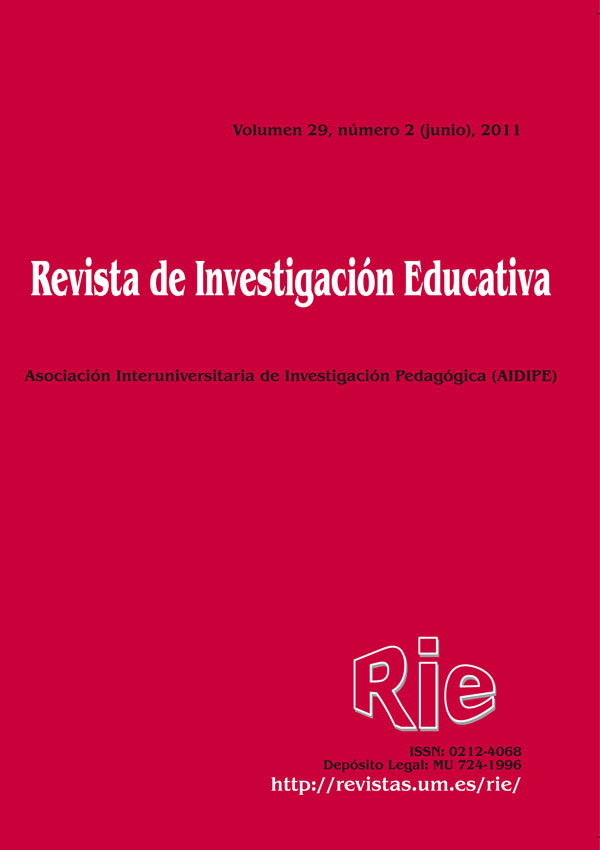
|
Towards the 3rd wave school leadership. Revista de Investigacion Educativa, 29(2), 253-275.
Abstract: This paper aims to elaborate the key features, rationales and implications of paradigm shifts in school leadership for learning in contexts of globalization and local developments. The paper also illustrates why a new paradigm of the third-wave leadership will be a major international trend of research, development, and practice of school leadership for new learning in the coming ten years.
Keywords: school leadership; education reform; paradigm shift in education; new learning; school change. |
Bain, A.,
Walker, A.,
& Chan, A.
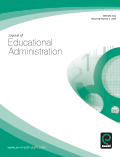 |
Self-organisation and capacity building: Sustaining the change. Journal of Educational Administration, 49(6), 701-719.
Abstract: The paper employs a case example in a Hong Kong School to illustrate the application of the principles and discuss their potential to sustain the effect of capacity building in schools. The descriptive case study is used to illustrate six theoretical propositions of self-organization. The case is then unpacked using each of the propositions to illustrate the application of the theory to capacity building in a secondary school setting.
|
Hallinger, P.,
& Lee, M.
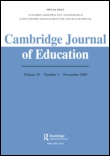
|
A decade of education reform in Thailand: Broken promise or impossible dream? Cambridge Journal of Education, 41(2), 139-158.
Abstract: This study addresses the perceived gap between the vision of education reform in Thailand embodied in its Education Reform Law of 1999 and the results of implementation a decade later. Drawing upon opportunistic data obtained from a sample of 162 Thai school principals, we analyze trends in reform implementa- tion across schools in all regions and levels of Thailand ’ s K-12 education sys- tem.
Keywords: leadership; school improvement; policy; education reform; Thailand
|
Hallinger, P.,
& Lu, J.

|
Assessing the instructional effectiveness of problem-based management education in Thailand: A longitudinal evaluation study. Management Learning, 42(3), 279-299.
Abstract: This article examines the instructional effectiveness of a problem-based curriculum at a business school in Thailand. The quasi-experimental study draws on seven years of student evaluation data to compare the instructional effectiveness of courses offered in a PBL track with other courses taught in the college.
Keywords: higher education, instructional effectiveness, management development, management education, problem-based learning |
Hallinger, P.,
& Lu, J.
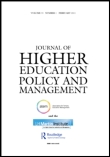
|
Implementing problem-based learning in higher education in Asia: Challenges, strategies, and effects. Journal of Higher Education Policy and Management, 33(3), 267-285.
Abstract: This paper explores the implementation of problem-based learning (PBL), one pedagogy of engagement in higher education in Asia. The research presents a longitudi- nal, mixed-methods case study of PBL implementation at a graduate school of business in Thailand. The data, collected over a seven-year period, suggest that implementation of a PBL track in the college’s management curriculum was successful when judged on a variety of academic staff and student indicators.
Keywords:curriculum change; curriculum implementation; higher education; leadership; organisational change; problem-based learning
|
Hallinger, P.,
& Tjeldvoll, A.

|
Letter from the editors for special issue on Higher education reform and change in East Asia. Journal of Higher Education Policy and Management, 33(3), 199–203.
Abstract: New empirical results show the importance of both minimal and high-level skills, the complementarity of skills and the quality of economic institutions, and the robustness of the relationship between skills and growth. International comparisons incorporating expanded data on cognitive skills reveal much larger skill deficits in developing countries than generally derived from just school enrolment and attainment.
|
Lee, M.,
& Friedrich, T.
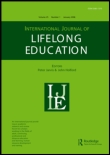
|
Continuously reaffirmed, subtly accommodated, obviously missing and fallaciously critiqued: Ideologies in UNESCO's lifelong learning policy. International Journal of Lifelong Education, 30(2). 151-169.
Abstract: This paper exposes the authoritative and marginal ideological influences within UNESCO's lifelong learning policy during the period between the 1990s and the early 2000s. Specifically, this research's analysis reveals that while social democratic liberalism as a dominant ideology was continuously reaffirmed in UNESCO's lifelong learning policy texts during the period, neoliberal stances were also subtly accommodated and radical social democrats' ideas missing in its recent lifelong learning policy texts. |
Hallinger, P.,
& Walker, A.
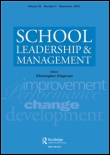
|
School leadership in Asia Pacific: Identifying challenges and formulating a research agenda. School Leadership and Management, 31(4), 299-303.
Abstract: This paper presents a descriptive analysis of education reform in selected Southeast Asian nations between 1995 and 2007. It reports the results of a purposive survey of elite informants comprising scholars and educational leaders involved in education reform in Thailand, Malaysia, Taiwan, Hong Kong and Singapore.
Keywords: leadership; management; educational change; education reform; Asia
|
Walker, A.,
& Ko, J.

|
Principal leadership in an era of accountability: A perspective from the Hong Kong context. School Leadership and Management, 31(4), 369-392.
Abstract: This article presents the findings of a study into the leadership practices of Hong Kong principals working within an environment of increasing accountability. The study set out to investigate the relationships between sets of principal leadership practices and the levels of alignment, coherence and structure and support for students in the school.
Keywords: principal; leadership; accountability; Asia; learning |
Hallinger, P.

|
Developing a knowledge base for educational leadership and management in East Asia. School Leadership and Management, 31(4), 305-320.
Abstract: This paper begins by offering evidence in support of this assertion. Then it examines the process of knowledge production as it has unfolded in Western academic contexts. Finally, it assesses the context in East Asia and offers recommendations for accelerating the development of a regionally valid knowledge base.
Keywords: Asia; leadership; educational change; knowledge base |
Walker, A.,
Qian, H. Y.,
& Zhang, S.

|
Secondary school principals in curriculum reform: Victims or accomplices? Frontiers of Education
in China, 6(3), 388-403.
Abstract: This article uses data collected from a group of Shanghai secondary school principals to examine the state of the curriculum reform from “the inside.” The main purpose of the article is to identify why the principals themselves believe that the reform is not working as intended and indeed whether they are in some way complicit in the slow rate of reform implementation.
Keywords: school principalship, curriculum reform, reform implementation, accountability |
Hallinger, P.,
& Heck, R
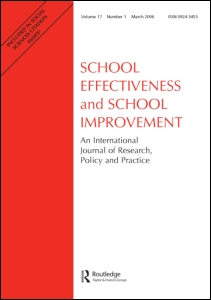 . .
|
Conceptual and methodological issues in studying school leadership effects as a reciprocal process. School Effectiveness and School Improvement, 22(2), 149-173.
Abstract: This paper examines the potential offered by conceptualizations of leadership as a reciprocal, or mutualinfluence, process to the study of leadership for learning. We explore a variety of conceptual and related methodological issues that confront researchers who wish to employ this potentially rich but challenging approach to understanding how school leadership contributes to student learning.
Keywords: leadership; school improvement; reciprocal; change |
Ralston, D.,
Hallinger, P., et al.

|
A 21st century assessment of values across the global workforce. Journal of Business Ethics, 104(1), 1-31.
Abstract: This article provides current Schwartz Values Survey (SVS) data from samples of business managers and professionals across 50 societies that are culturally and socioeconomically diverse. We report the society scores for SVS values dimensions for both individual- and societal-level analyses.
|
Ho, D.
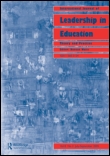
|
Identifying leadership roles for quality in early childhood education programmes. International Journal of Leadership in Education, 14(1), 47-59.
Abstract: This article aims to identify leadership roles for quality in early childhood programmes in the local settings of a sample of Hong Kong preschools. The implications of the study for promoting moral leadership and developing teacher leadership are discussed.
|
Law, E. H. F.
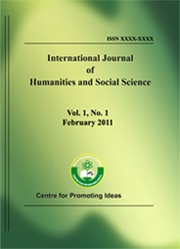
|
School-based curriculum innovations: A case study in mainland China. International Journal of Humanities and Social Science, 1(2), 156-166.
Abstract: This paper documents an investigation of a school in Southern China, focusing on the structural and strategic measures employed by the school and its teachers in responding to these challenges. The paper concludes with moderate reservations on the effect of policy change based on empirical data from interviews with the school leadership and teachers.
|
Law, E. H. F.

|
Exploring the role of leadership in facilitating teacher learning in Hong Kong. School Leadership and Management, 31(4), 393-410.
Abstract: This study explored the efficacy of an approach to developing distributed curriculum leadership among school teachers. The research employs discourse analysis of video-taped meetings of teachers in a mathematics curriculum development team in order to explore the leadership and teacher learning.
Keywords: curriculum leadership; distributed leadership; teacher learning; discourse analysis; Asia
|
Cheng, Y. C.,
Cheung, A.,
& Yuen, W. W.
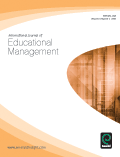
|
Development of a regional education hub: The case of Hong Kong. International Journal of Educational Management, 25(5), 474-493.
Abstract: This paper aims to review and analyze the functions, strategies and related issues of developing a regional education hub in the trends of education development in China as well as the Asian Pacific region.
Keywords: Higher education, Education hub, Education industry, Education export, International education, Education, Hong Kong
|
Cheung, A.,
Yuen, W. W.,
Yuen, Y. M.,
& Cheng, Y. C.

|
Strategies and policies for Hong Kong's higher education in Asian markets: Lessons from the United Kingdom, Australia, and Singapore. International Journal of Educational Management, 25(2), 144-163.
Abstract: The main purpose of the present paper is twofold: to examine and compare the current strategies and policies that are employed by the UK, Australia and Singapore and to recommend appropriate strategies and policies to higher education institutions and the Hong Kong government and elsewhere that are interested in expanding their efforts in recruiting the growing number of students from other countries who are planning to study overseas.
Keywords: Hong Kong, Higher education, Government policy, Educational policy, Cross-cultural studies |
Hallinger, P.

|
Leadership for learning: Lessons from 40 years of empirical research. Journal of Educational Administration, 49(2),125-142.
Abstract: This paper aims to present a research-based model of leadership for learning. It argues that the field has made substantial progress over the past 40 years in identifying ways in which leadership contributes to learning and school improvement. Four specific dimensions of leading for learning are presented: values and beliefs, leadership focus, contexts for leadership, sharing leadership.
Keywords: Leadership, Learning, Schools, Principals, Organizational change, Change management |
Hallinger, P.,
& Heck, R. H.

|
Exploring the journey of school improvement: Classifying and analyzing patterns of change in school improvement processes and learning outcomes. School Effectiveness and School Improvement, 22(1), 1-27.
Abstract: This study sought first to determine if it was possible to identify and classify different patterns of growth in ‘school improvement journeys’ across a large number of schools. Then the research sought to link these patterns of school improvement to contextual conditions as well as to changes in alterable school-level conditions such as collaborative, learning-directed leadership and school academic capacity.
Keywords: leadership; collaborative leadership; school improvement; leadership for learning; longitudinal research |
Sammons, P. M.,
Gu, Q., Day, C.,
& Ko, J.

|
Exploring the impact of school leadership on pupil outcomes: A study of academically improved and effective schools in England. International Journal of Educational Management, 25(1), 83-101.
Abstract: The study adopted a mixed methods longitudinal design to investigate the leadership of academically effective and improving schools identified from analyses of national assessment and examination data sets. In addition, questionnaire surveys of principals and key staff and 20 qualitative school case studies were conducted.
Keywords: Schools, Leadership, Principals, Organizational performance, England |